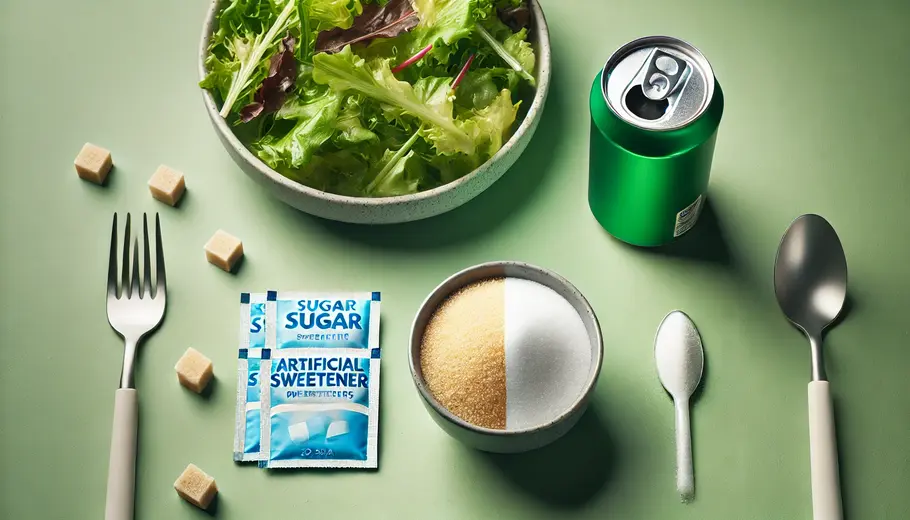Artificial sweeteners, also known as non-nutritive sweeteners, are synthetic compounds that mimic the sweetness of sugar but without the calories. Commonly used options include aspartame, sucralose, saccharin, and stevia. These sweeteners are particularly appealing to those managing diabetes, weight loss, or calorie intake. However, their health effects have been a topic of debate among researchers and consumers alike.
n today’s world, where health consciousness is on the rise, artificial sweeteners have become a popular alternative to sugar. Promoted as a healthier and calorie-free option, artificial sweeteners are widely used in beverages, snacks, and even baked goods. But the big question remains: Are artificial sweeteners really better than sugar? Let’s dive into the science, benefits, and potential risks to uncover the truth.
How Do Artificial Sweeteners Compare to Sugar?
Sugar, particularly refined sugar, is high in calories and contributes to several health concerns, including obesity, diabetes, and tooth decay. Artificial sweeteners, on the other hand, are marketed as a safer, low-calorie substitute. Here’s how they stack up:
1. Calorie Count
- Sugar: High in calories (about 16 calories per teaspoon). Excessive consumption can lead to weight gain.
- Artificial Sweeteners: Virtually calorie-free, making them attractive for weight management.
2. Glycemic Impact
- Sugar: Causes blood sugar levels to spike, which is a concern for people with diabetes.
- Artificial Sweeteners: Do not affect blood sugar levels, making them diabetic-friendly.
3. Sweetness Intensity
- Artificial sweeteners are often hundreds of times sweeter than sugar, meaning only a small amount is needed for the same sweetness level.
Potential Benefits of Artificial Sweeteners
- Weight Management
Substituting sugar with artificial sweeteners can help reduce daily calorie intake, which may aid in weight loss or maintenance. - Diabetes Management
For those with diabetes, artificial sweeteners offer a way to enjoy sweet flavors without the blood sugar spikes caused by regular sugar. - Dental Health
Unlike sugar, artificial sweeteners do not contribute to cavities or tooth decay.
Potential Risks of Artificial Sweeteners
While artificial sweeteners offer several benefits, they are not without controversy. Here are some concerns associated with their use:
1. Gut Health : Studies suggest that some artificial sweeteners may negatively affect gut microbiota, potentially leading to digestive issues and metabolic changes.
2. Increased Sweet Cravings : Because artificial sweeteners are so much sweeter than sugar, they may train the brain to crave intensely sweet foods, making it harder to enjoy naturally sweet options like fruits.
3. Controversial Studies on Long-Term Use
- Some studies have linked certain artificial sweeteners, like saccharin and aspartame, to potential health risks, including cancer. However, these studies are often inconclusive or conducted with doses far higher than typical human consumption.
4. Natural vs. Artificial Debate : While sugar is derived from natural sources, many artificial sweeteners are chemically produced. This has led some consumers to prefer natural sweeteners, such as honey or maple syrup, despite their calorie content.
Also Read This : Know the side effects of sugar and Natural vs Added Sugar.
What About Natural Sweeteners?
Natural sweeteners like stevia and monk fruit extract have gained popularity as they combine the benefits of being low-calorie with being plant-derived. They may be a middle ground for those looking to avoid both refined sugar and synthetic alternatives.
When to Choose Artificial Sweeteners Over Sugar
Artificial sweeteners may be a better choice if:
- You are managing diabetes and need to avoid blood sugar spikes.
- You are trying to reduce calorie intake for weight loss or maintenance.
- You want to lower your risk of dental issues caused by sugar.
The Verdict: Are Artificial Sweeteners Really Better Than Sugar?
The answer largely depends on your health goals and lifestyle. While artificial sweeteners have clear advantages, such as being low in calories and diabetic-friendly, they are not a perfect solution. Moderation is key when using artificial sweeteners, just as it is with sugar. For those concerned about long-term health impacts, exploring natural sweetener options might be a better approach.
Conclusion
In the sweet debate between artificial sweeteners and sugar, it’s important to make informed choices based on your individual health needs. While artificial sweeteners offer a calorie-free alternative, their long-term safety and effects on the body are areas that require further research. Always strive for a balanced diet and consult with a healthcare professional when making significant changes to your eating habits.
Disclaimer
This article provides general information about artificial sweeteners and sugar. It is not a substitute for professional medical advice, diagnosis, or treatment. Always consult with a specialist or your own doctor for more information. Well Health Organic does not take responsibility for the accuracy or completeness of this information. We do not guarantee the products, remedies, or information mentioned here, nor do we guarantee any products or information accessed through links provided. We do not recommend purchasing these products.















